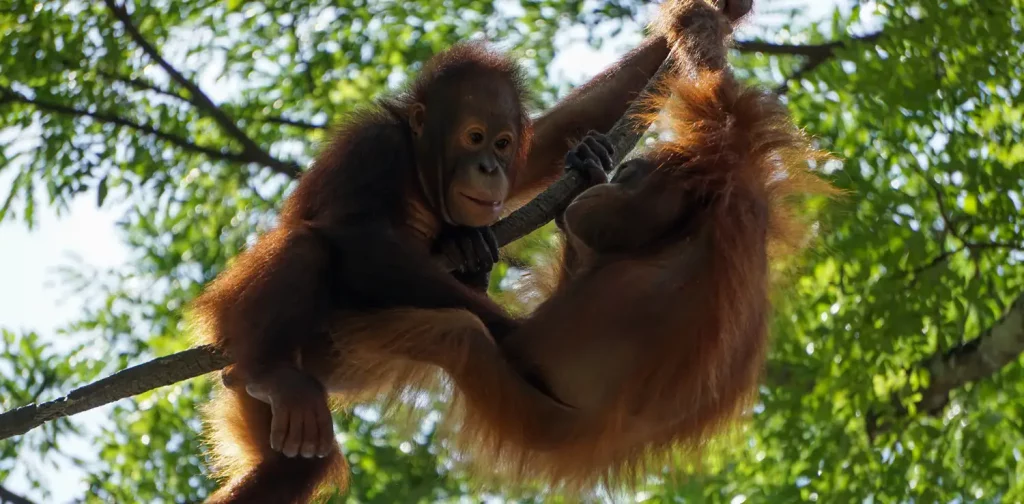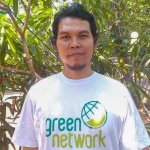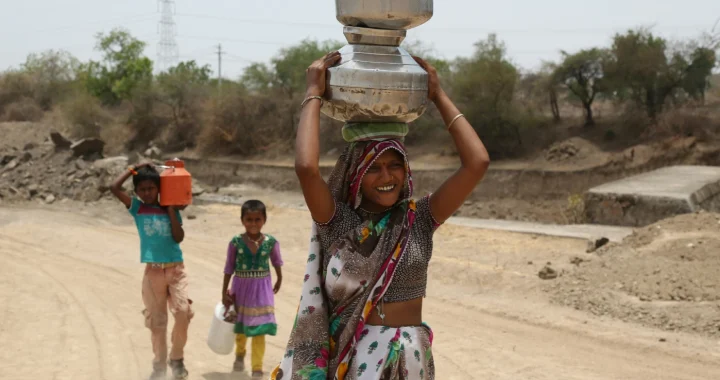Orangutan Information Center’s Mission to Save Sumatran Orangutans

Photo by Stuart Jansen on Unsplash.
Orangutans are Indonesian animals that are considered protected species. They have a vital role in keeping tropical forest ecosystems healthy by spreading the seed of various trees across the forests.
Unfortunately, orangutans are under threat of extinction. According to the IUCN Red List of Threatened Species, three orangutan species exist in Indonesia (Sumatran orangutan, Bornean orangutan, and Tapanuli orangutan) are listed as Critically Endangered. This is mainly due to forest loss, which is their natural habitat.
Seeing that fact, Orangutan Information Center (OIC) makes it their mission to rescue orangutans and their habitats in Sumatra, Indonesia. This organization works with the local communities who live beside the orangutans’ habitat at the Leuser Ecosystem and Batang Toru, South Tapanuli.
Not Only Orangutans
OIC was established in 2001 by Panut Hadisiswoyo. One of their missions is to tackle human-orangutan conflicts through the Human-Orangutan Conflict Response Unit (HOCRU). Along the way, OIC also focuses on protecting wild animals, rehabilitating habitats, restoring forests, empowering communities through sustainable agriculture, and building collaborations with governmental institutions and other organizations to tackle crime against lands.
In 2008, OIC pioneered the forest restoration program on the degraded lands at Leuser Ecosystems, where more than 2,390 hectares of forest with High Conservation Values were illegally cleared for plantation development. In this case, OIC has reduced illegal plantations by cutting down more than 15,000 oil palm trees, 5,000 rubber trees, and other illegal plants.
OIC restored forests by planting over 2,2 million seeds of 97 indigenous tree species at more than 800 hectares of forests inside and outside Mount Leuser National Park. Every hectare of critical land is planted with approximately 1,100 seeds from 20-30 different tree species.
Empowering the Communities
To empower local communities, OIC helps provide job alternatives through sustainable agriculture. The organizations formed Community Agroforestry, Reforestation, and Education (CARE) to transform the villages to be conservation-oriented. OIC introduces environmental education, awareness, and habitat protection. CARE’s mission targets several communities that live side-by-side with orangutan habitats.
Since 2001, around 6,164 farmers from 53 villages in the Leuser Ecosystems have been invited to participate in various educational workshop programs to develop sustainable agriculture practices. Together with Orangutan Republik Foundation, OIC also implements Orangutan Caring Scholarship schemes to support the studies regarding ecology and orangutan conservation at Sumatra.
Furthermore, OIC also formed The Forest and Wildlife Patrol Unit (ForWPU) to encourage local communities to participate in conservation and forest protection efforts by aiding the legal process of criminal offenses in the Leuser Ecosystem.
OIC’s Works in Numbers
OIC conducts research and surveys based on data to measure the success and impacts of their movements. Below are a few of OIC’s work progress from 2012 until 2020:
- Rescuing 223 orangutans (through translocations and confiscated from private ownership).
- Restoring 2,629 Ha degraded land at Leuser Ecosystem from 2008 until 2020.
- Planting 2,523,352 tree seeds to restore degraded lands.
- Providing annual scholarships to students from Aceh and North Sumatra since 2006.
- Assisting the law enforcement process of 46 forestry-related crimes with the National Conservation Agency.
- Trained 6,229 communities on human-orangutan conflicts, organic agriculture, and forest restoration.
Translator: Kresentia Madina
The original version of this article is published in Indonesian at Green Network Asia – Indonesia.
This article is published by scheduling per 23 December 2022. The Green Network Team is currently on end-of-year break until 02 January 2023.

Co-create positive impact for people and the planet.
Amidst today’s increasingly complex global challenges, equipping yourself, team, and communities with interdisciplinary and cross-sectoral insights on sustainability-related issues and sustainable development is no longer optional — it is a strategic necessity to stay ahead and stay relevant.

Abul Muamar
Amar is the Manager of Indonesian Digital Publications at Green Network Asia. He holds a Master’s degree in Philosophy from Universitas Gadjah Mada and a Bachelor’s degree in Communication Studies from Universitas Sumatera Utara. He has over ten years of professional experience in journalism as a reporter and editor for several national-level media companies in Indonesia. He is also a writer, editor, and translator with a particular interest in socio-economic and environmental issues.


 Embracing the Business Value of Sustainability
Embracing the Business Value of Sustainability  American Farmers Call for Government Support Amidst PFAS Contamination
American Farmers Call for Government Support Amidst PFAS Contamination  Asia Pacific’s SDG Progress Faces Major Setbacks
Asia Pacific’s SDG Progress Faces Major Setbacks  Exploring the Bidirectional Relationship Between Olympic Games and the Environment
Exploring the Bidirectional Relationship Between Olympic Games and the Environment  The Hidden Threat of Tire Pollution to Salmon Populations
The Hidden Threat of Tire Pollution to Salmon Populations  Understanding the Climate-Care Nexus
Understanding the Climate-Care Nexus